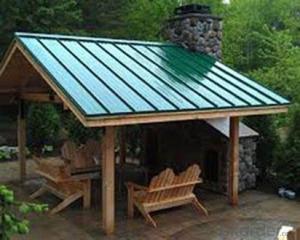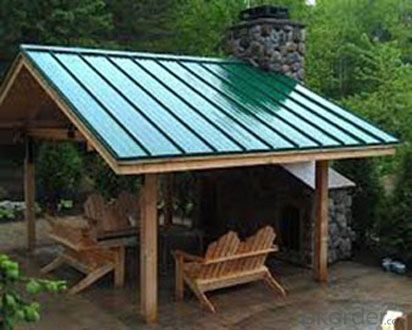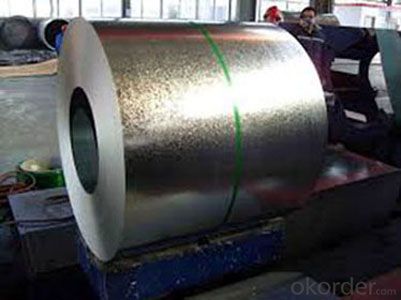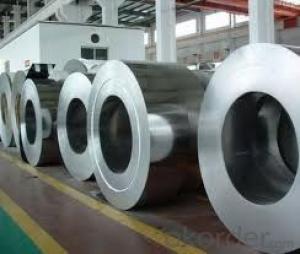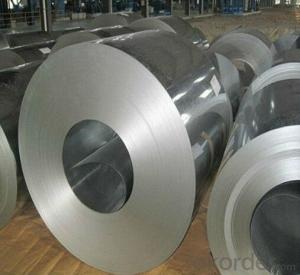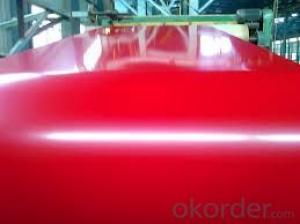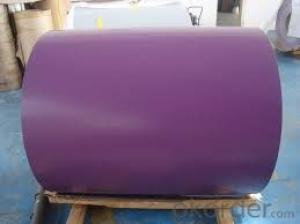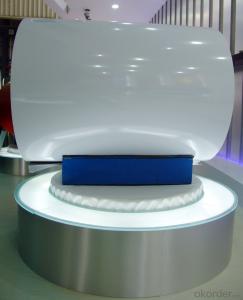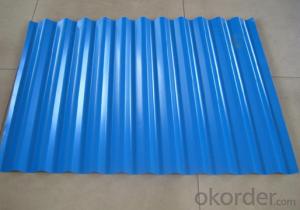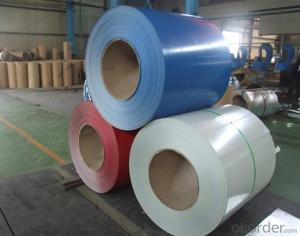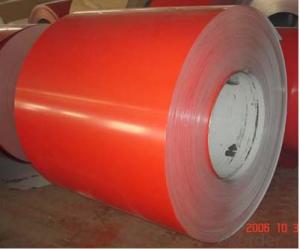Pre-Painted Galvanized Steel Roofing Sheet PPGI/Hot Dipped Galvanized Steel Coil
- Loading Port:
- China main port
- Payment Terms:
- TT OR LC
- Min Order Qty:
- 25 m.t.
- Supply Capability:
- 10000 m.t./month
OKorder Service Pledge
OKorder Financial Service
You Might Also Like
Product Description
Commodity: Hot dipped galvanized steel coil
Size: Thickness: 0.20mm to 1.2mm; Width: 500mm to 820mm
Surface finish: Regular spangle; Small spangle
Surface treatment: Chromated passivation
Zinc coating: Z08, Z12, Z18
Packing: Mill's standard packing for exporting
Usage: used in the industries such as construction ,cold rolling forming and electro mechanics manufacturing, household electric appliance manufacturing and etc
Standard adopted: GB/T2518-1998;Also we supply such steel strips according to JIS,ASTM standard to meet users'requirements.
Steel grade: Q195,Q195L,SPCC(Other material require agreement )
Equivalent standard: JIS G3302 1998 or ASTM A653M/A924M 1998
Price Terms: FOB, CIF Term
Payment Terms: T/T, L/C at sight
Delivery: 15 days after receiving your valid L/C/down payment
andard | EN 10142 | DX51D+Z, DX52D+Z, DX53D+Z |
JIS G3321 | SGCC, SGCD, SGCDD, SGC400 | |
ASTM A792M | CS type C, CS type B, DS, SS250 | |
Base Metal | Cold rolled steel coils SPCC, SPCD, SPCE, DC01, DC03, DC04, CS, DS, DDS, Q195, Q250, Q350 | |
Thickness | 0.14mm-3.0mm | |
Width | 600mm-1600mm | |
Coil ID | 508mm, 610mm | |
Zinc coating | 60g/m2-450g/m2 | |
Surface treating | chromium free passivation, chromium passivation, fingerprint resistant, oiled | |
Spangle types | Minimal spangle, zero spangle, regular and big spangle | |
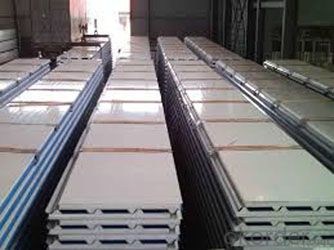
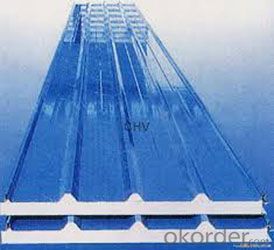
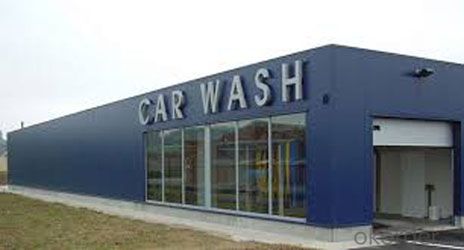
FAQ
1.What's your MOQ?
25MT, it is for one container.
2.Do you have QC teams?
Yeah, sure, our QC team is very important, they will keep the quality control for our products.
3. What's your normal delivery time?
Our delivery time about 10-20days for standard sizes, if you have other requirements like hardness and width ,it is about 20-40days. But don't worry ,we also try our best for the delivery time ,because time longer and our cost is higher.
4.Are the products tested before shipping?
Yes, all of our PPGI and GI was qualified before shipping. We test every batch every day.
- Q: What is the maximum width of a steel coil?
- The maximum width of a steel coil can vary depending on the specific manufacturing capabilities and equipment being used. However, in general, steel coils can have widths ranging from a few inches to several feet.
- Q: describe the benifits and disadvantages of the using steel as a material for fasteners
- Relatively cheap, strong, and non-toxic. For Carbon Steel alloys rust and corrosion are problems. For stainless alloys, cost becomes the problem [and corrosion is not eliminated]
- Q: Can steel coils be returned if they are damaged?
- Yes, steel coils can be returned if they are damaged. Most suppliers and manufacturers have return policies in place for damaged goods, including steel coils. It is important to contact the supplier or manufacturer promptly and provide documentation or evidence of the damage to initiate the return process.
- Q: this is for a school project due morrow can u please answerwhat are disadvantages of stainless steelplease also show were u got info ty
- it sometimes rusts
- Q: How are steel coils packaged for shipment?
- Steel coils are typically packaged for shipment by being tightly wrapped in protective materials such as plastic or steel strapping. They are then secured onto pallets or placed into steel crates, ensuring stability during transportation. The packaging helps to prevent damage, corrosion, and movement during handling and transit.
- Q: How are steel coils used in the manufacturing of springs?
- Steel coils are used in the manufacturing of springs by being wound and coiled into a helical shape, providing the necessary strength and flexibility to the springs.
- Q: How do steel coil manufacturers handle custom orders?
- Steel coil manufacturers handle custom orders by following a systematic process that involves understanding the specific requirements of the customer, designing and producing the custom coils, and ensuring quality control throughout the manufacturing process. Firstly, when receiving a custom order, manufacturers must thoroughly understand the customer's specific needs. This involves detailed communication and collaboration with the customer to gather information about the desired specifications, dimensions, tolerances, and other special requirements. Manufacturers may also provide technical expertise and guidance to the customer to ensure that the custom order can be successfully produced. Once the requirements are clearly defined, manufacturers proceed with designing and engineering the custom steel coils. This involves utilizing advanced software and engineering tools to create detailed designs and specifications that meet the customer's unique needs. Manufacturers may also create prototypes or samples for the customer's approval before proceeding with full-scale production. After the design phase, manufacturers begin the production process. This typically involves sourcing the appropriate raw materials, such as steel coils of the required composition and thickness. The coils are then processed through various manufacturing stages, including cutting, shaping, and forming, to achieve the desired dimensions and shapes. Specialized equipment and machinery are used to ensure precision and accuracy throughout the production process. Quality control is a crucial aspect of handling custom orders. Manufacturers conduct rigorous inspections and testing procedures at various stages of production to ensure that the custom coils meet the customer's specifications and industry standards. This includes checking for dimensional accuracy, surface finish, mechanical properties, and any other specific requirements set by the customer. Manufacturers may also involve third-party inspection agencies or provide customers with test reports and certifications for quality assurance. Finally, once the custom steel coils are manufactured and pass all quality checks, they are carefully packaged and delivered to the customer. Manufacturers ensure proper packaging and shipping methods to prevent any damage during transit and ensure the coils reach the customer in optimal condition. In summary, steel coil manufacturers handle custom orders by closely collaborating with customers, designing and engineering specialized coils, ensuring quality control throughout the production process, and delivering the custom coils to the customer's satisfaction. This systematic approach allows manufacturers to meet the unique requirements of each customer and deliver high-quality custom steel coils.
- Q: case hardening steel is adviced or thru hardening steel is most suitable?
- I don't know your application, but here is some advice. Case hard provides a hard shell around soft steel, depending on the bake, the case is usually .002-.008 thick. (thousands of an inch) Heat treated steel or tool steel is hard all the way thru. Case hardening, provides toughness with flexibility, however, once it's compromised, the part is scrap. Hardend tool steel is extreemly hard throughout and the harder it is, the more brittle it becomes. The application of the part will help you to determine the material needed. For instance; Plastic injection molds are very hard so the hot plastic wont erode them over years of use. Punch Press dies aren't as hard but are tougher to withstand the shock. Machine bolts are case hardened so they can last, but soft enough to allow some stretching during tightening. Either way, the time in mfg will be about the same. Most tool steels today cut like cheese, but take time to be heat treated. Tool steel will cost a bit more than low carbon steel. Low carbon steel is as machinable, and cheaper, but, again, the baking period is as long or longer than tool steel. There are a lot of materials on the market today that maintain the durability of heatreated steel without having to go thru that process. 4140, ( or chrome/moly) comes to mind. There are also some 400 series stainless that work as well, and others. You need to determine strength, flexibility, ease of mfg, cost and repairability when considering which steel to use.
- Q: How do steel coils contribute to the automotive lightweighting trend?
- There are several ways in which steel coils contribute to the automotive lightweighting trend. Firstly, they are used in the production of advanced high-strength steels (AHSS), which offer a higher strength-to-weight ratio compared to traditional steel grades. These AHSS provide the same structural integrity as conventional steel but with less weight. By using AHSS in the construction of vehicle components such as body panels, chassis, and suspension systems, automakers can reduce the overall weight of the vehicle, leading to improved fuel efficiency and lower emissions. Additionally, steel coils are utilized in the manufacturing of tailor-rolled blanks (TRBs). TRBs are created by welding or bonding different steel grades together in a coil before stamping them into the desired shape. This method allows for the optimization of material usage, as stronger steel grades can be strategically placed in areas that require higher strength, while lighter grades can be used in less critical areas. This technique not only reduces weight but also enhances safety by reinforcing necessary areas of the vehicle. Furthermore, steel coils enable the production of thinner and more formable steel sheets. Advances in steelmaking technology have made it possible to develop thinner gauges without compromising strength and durability. Thinner steel sheets are easier to shape and form, making it possible to create complex and lightweight automotive parts. This not only reduces weight but also improves design flexibility and aerodynamics, resulting in enhanced performance and fuel efficiency. Moreover, steel coils contribute to cost-effectiveness in lightweighting efforts. Steel is a relatively affordable material compared to alternatives like aluminum or carbon fiber. By utilizing steel coils, automakers can achieve their lightweighting goals while keeping manufacturing costs under control. This affordability aspect is particularly important in the automotive industry, where cost considerations play a significant role in vehicle design and production. In conclusion, steel coils play a vital role in the automotive lightweighting trend by enabling the production of advanced high-strength steels, tailor-rolled blanks, thinner and more formable steel sheets, and cost-effective lightweight solutions. These advancements contribute to improved fuel efficiency, reduced emissions, enhanced safety, and increased design flexibility, all of which are crucial factors in the ever-changing automotive industry.
- Q: What is the maximum temperature steel coils can withstand?
- The specific grade and type of steel being used determine the maximum temperature that steel coils can tolerate. Steel possesses strong heat resistance and can generally endure temperatures ranging from 550°C to 1,100°C (1,022°F to 2,012°F), depending on the grade. Nevertheless, it is essential to acknowledge that extended exposure to high temperatures may compromise the structural integrity of the steel, leading to permanent deformation or failure. Hence, it is crucial to adhere to the manufacturer's guidelines and specifications when establishing the maximum temperature that steel coils can withstand for particular applications.
Send your message to us
Pre-Painted Galvanized Steel Roofing Sheet PPGI/Hot Dipped Galvanized Steel Coil
- Loading Port:
- China main port
- Payment Terms:
- TT OR LC
- Min Order Qty:
- 25 m.t.
- Supply Capability:
- 10000 m.t./month
OKorder Service Pledge
OKorder Financial Service
Similar products
Hot products
Hot Searches
Related keywords
